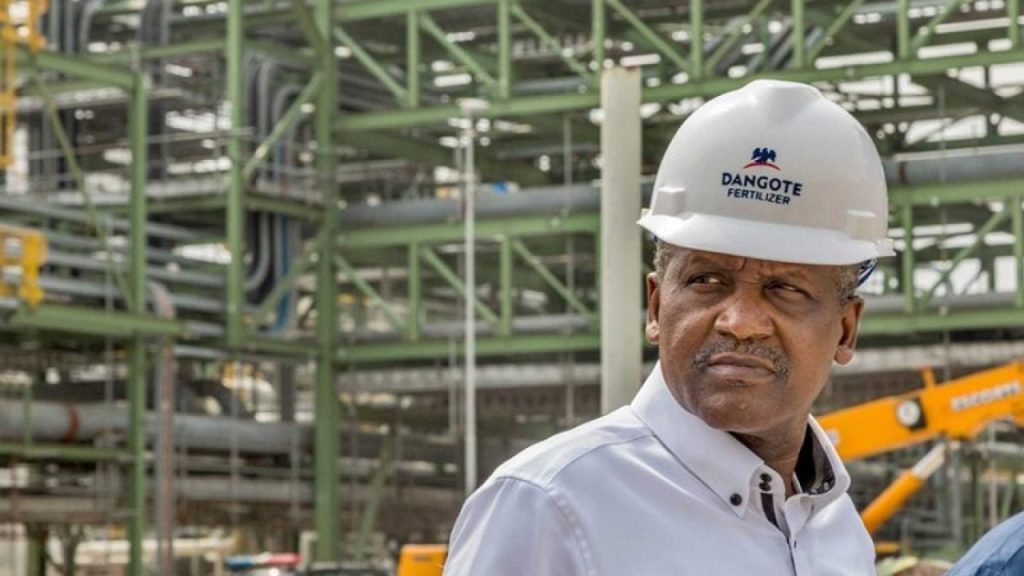The Nigerian downstream petroleum sector is embroiled in a high-stakes conflict between the Dangote Group, owners of the newly operational Dangote Refinery, and the Depot and Petroleum Products Marketers Association of Nigeria (DAPPMAN). The core issue revolves around accusations of product diversion leveled by Dangote against the marketers. Dangote alleges that marketers are purchasing discounted fuel from the refinery under the pretext of domestic supply but are instead smuggling it to neighboring countries where prices are significantly higher, thereby draining Nigeria’s resources. DAPPMAN vehemently denies these accusations, demanding Dangote retract the claims within seven days or face legal action. The association challenges Dangote to provide concrete evidence of the alleged diversion, emphasizing that smuggling is a national security issue that should be handled by relevant agencies if any of its members are involved. This escalating feud occurs against a backdrop of fluctuating fuel prices, supply concerns, and the broader liberalization of the downstream sector.
The dispute extends beyond mere accusations of smuggling. Dangote Group asserts that entrenched cartels within the marketing sector have historically manipulated Nigeria’s import and subsidy framework, costing the nation dearly. The refinery giant has challenged DAPPMAN to undergo a forensic audit of its import records over the past five years to ascertain whether subsidy payments and equalization claims align with actual daily consumption. Dangote maintains that the marketers’ primary motive is to capitalize on discounted refinery prices while simultaneously profiting from cross-border sales. This practice, they argue, has long depleted Nigeria’s resources, and they refuse to be complicit. Meanwhile, DAPPMAN counters that the recent decline in fuel pump prices is not due to Dangote’s price cuts but rather a result of market forces, including a stronger naira and declining crude oil prices. They argue that the refinery is attempting to take credit for market-driven changes while simultaneously seeking to monopolize the downstream sector.
DAPPMAN has raised concerns about what they perceive as anti-competitive practices by the Dangote Refinery. They accuse the refinery of offering substantial discounts to foreign traders while restricting access for Nigerian marketers, denying them coastal vessel loading rights and forcing them to rely on offshore transactions in Lomé. This, they argue, undermines the existing infrastructure of independent marketers who operate numerous depots and retail stations nationwide. Furthermore, DAPPMAN expresses apprehension about Dangote’s plan to deploy a large fleet of CNG trucks, citing potential road safety risks. The association emphasizes that Dangote’s accusations not only tarnish the reputation of marketers but also cast doubt on the credibility of regulatory agencies, potentially eroding public trust in institutions that the current administration is striving to strengthen.
Adding another layer of complexity to the situation, the National Industrial Court in Abuja issued an injunction preventing the Nigeria Union of Petroleum and Natural Gas Workers (NUPENG) and the Direct Trucking Company Drivers Association from engaging in strike actions or blockades that could disrupt the operations of the Dangote Refinery, MRS Oil Nigeria Limited, and MRS Oil and Gas Company Limited. This legal intervention followed protests by NUPENG alleging that Dangote was employing drivers for its CNG trucks without granting them unionization rights. The confluence of these events highlights the growing tensions within Nigeria’s reforming downstream oil sector as the nation grapples with subsidy removal and market liberalization. The introduction of Dangote’s large-capacity refinery has significantly altered the dynamics of supply, pricing, and competition, posing both opportunities and challenges for existing industry players and the government.
In response to DAPPMAN’s ultimatum, the Dangote Refinery has stood firm, stating its willingness to defend its position in court and present all necessary supporting documentation. They contend that DAPPMAN’s attacks stem from their demand for a substantial annual subsidy to match the refinery’s gantry prices at their own depots. Dangote explains that while they offer products at a competitive gantry price, DAPPMAN insists on receiving products via coastal logistics, which significantly increases costs. They are unwilling to absorb these additional costs or pass them on to consumers, effectively rejecting the implicit subsidy request. Furthermore, Dangote insists they have sufficient capacity to meet domestic demand and support exports, highlighting their substantial closing stock of refined products. They maintain that their operations are aligned with the government’s reform initiatives and contribute to stabilizing the naira, cushioning the effects of subsidy removal, and boosting foreign exchange earnings.
The unfolding dispute between Dangote and DAPPMAN is a crucial test for Nigeria’s evolving downstream petroleum sector. The outcome will likely have far-reaching implications for market dynamics, competition, and the role of both established players and new entrants. While the Dangote Refinery promises increased domestic production and reduced reliance on imports, concerns about potential monopolistic practices and the displacement of existing market participants need careful consideration. The government faces the delicate task of balancing the need for transparency and competition with ensuring affordability for consumers. The seven-day ultimatum issued by DAPPMAN sets the stage for either a legal battle or a negotiated resolution, with the future of the Nigerian petroleum sector hanging in the balance. The path forward requires a commitment to transparent practices, fair competition, and a regulatory framework that safeguards the interests of all stakeholders while promoting the long-term stability and efficiency of the industry.














